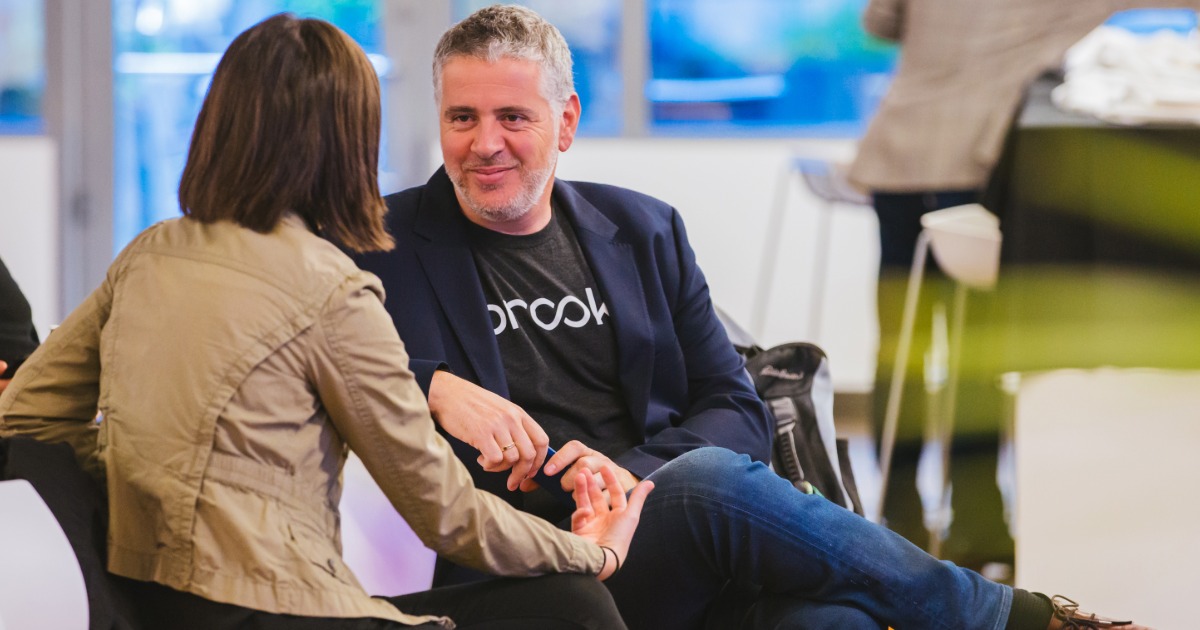Chicago-based company folds patients into care equation
CHICAGO - "Patient engagement" has become one of healthcare's many new buzz phrases. But as the framers of meaningful use might say, it's more than buzz. It's a critical piece of improving care.
Devin Gross agrees. Chicago-based Emmi Solutions, has always been about boosting care - long before the words "meaningful use" became part of the healthcare IT parlance.
Today, that goal is proving to be the biggest factor in Emmi's rapid growth.
Since 2009 when Gross counted about 46 enterprise clients, Emmi has grown to include some 80 clients that represent more than 200 hospitals. On the revenue side, Gross estimates growth in the 25 percent plus range. The staff has almost doubled to 80 people over the past two years.
"From Day 1, we always felt that patients were the most under-utilized resource in the healthcare system," says Gross. "They wanted to be more involved. They weren't given the tools to do so. We've always believed that. However 10 years ago, no one cared."
Today, it seems everyone cares.
"So, did we know how the market was going to transform 10 years ago? Absolutely not," Gross says. "Did we believe passionately as a company that patients and people, in general, could and should play more of a role in healthcare, and if they did, they could help address some of the cost and quality issues? We always believed that."
Emmi's patented platform, which prescribes, tracks and stores patient interactions, has enabled hospitals to achieve quantifiable, actionable results, says Gross. More than four million programs have been prescribed to date.
Patients view Emmi programs at their convenience on a computer or mobile device to help make sense of complex medical information and manage expectations around procedures, chronic health conditions or the hospital experience.
"We're always about increasing patient opportunity for patient engagement and participation, and this has done that," says Arnold Wagner, MD, CMIO of NorthShore University HealthSystem in the Chicago metro area. NorthShore has employed Emmi for patient education for a little more than two years, especially for its obstetrics patients.
"It's part of our routine care," he says. "We give them a password and access, and evidence that they have done it goes into our electronic health record. We don't mandate that they use it, but I think most patients have embraced it." As Emmi develops new offerings, Wagner says NorthShore will likely add them for its patients.
Emmi is already launching new products and has more in development to add to its core products. The company recently released EmmiTransition to facilitate transitions of care from one care setting to another.
"The results have been absolutely fantastic with our early adopters," Gross says. "And the work that we've done with Hackensack has shown that we really have made significant impact."
"We've always tried to make at least one phone call upon discharge," says Louis E. Teichholz, medical director of cardiac services at Hackensack University Medical Center in New Jersey. "Ideally, we'd like to make multiple phone calls, but the problem is in terms of resources." EmmiTransition, he says, "gives us a better way of staying in touch."
Emmi is not only expanding by adding new products (EmmiPrevent is next) but also by including different modalities.
"We had always been a Web-based solution," Gross says. "So you needed a browser on a desktop. And that was great, and we grew nicely that way, but when we looked at the trends in the market, we said, 'There's no reason why our communication should be limited to that single device.'"
Today Emmi products are available on mobile devices, and they integrate with voice recognition software. Texting will soon be available.
A key component in new models of care, such as the patient-centered medical home and an accountable care organization, is effectively engaging and empowering people, Gross says.
"The idea is to effectively get patients to manage themselves, which is the only way that organizations are going to get financially viable. You need tools like Emmi. So it's kind of a perfect storm for us today."


